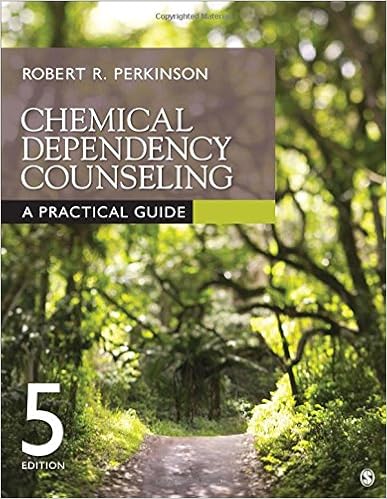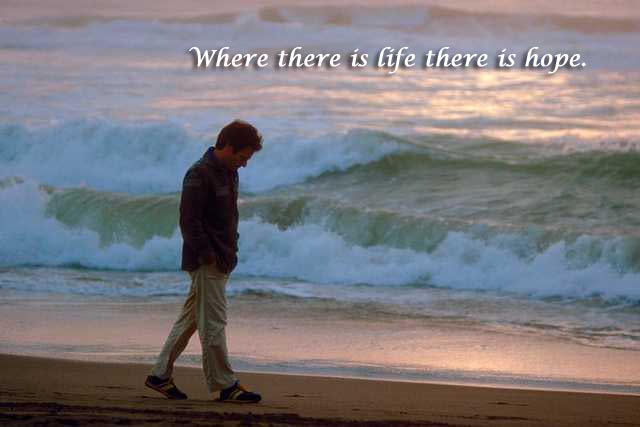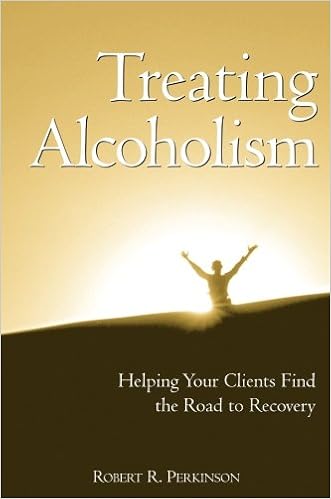Spirituality and Alcoholism | Addiction
Video: Spirituality and Addiction
A Higher Power
Many clients rebel at the very idea of a Higher Power. They must be gently encouraged to open the door just a little and to seek. They must be encouraged to be honest, open-minded, and willing. They need power. They are powerless. They need someone else to manage. Their lives are unmanageable.
At first, you encourage clients to see that some sort of a Higher Power can exist. The clients must look at their interpersonal group and see that the group has more power than they do. You can say something like this to a client: “If you wanted to leave this room, and the group wanted to keep you in, do you think you could leave?” The matter becomes obvious. The group could force the client to stay inside of the room. It might take some wrestling, but the group has more physical power than the client does. The client could then be asked if he or she is willing to place his or her trust in the Higher Power of the group.
Trust is a difficult issue for most addicts, and they will need to process their lack of trust with the group. This is a good issue for group work. If clients cannot trust the group as a whole, can they trust anyone in the group? If they cannot trust anyone, can they trust themselves? Are they willing to try to trust—to be open to the possibility? If they are unable to trust themselves and are unable to trust anyone else, then they are lost. They will have to start somewhere. This reality will have to be driven home. The clients cannot really trust themselves. That should be obvious. There were times when they were out of control, they were powerless, and their lives were unmanageable.
The best way of having clients learn to trust the group is to develop a caring group. The members are actively interested and involved in each other’s growth in this group. They gently help each other to search for the truth. The group members are kind, encouraging, and supportive. The group members never are hostile and aggressive. They do not put each other down. That is counterproductive. If you have an aggressive and highly confrontive group, then you destroy trust. People must learn to confront each other in an atmosphere of love and unconditional positive regard. It is your job to teach the group this process.
Once clients trust the group, they can begin to transfer this trust to the 12-step group. The clients should attend as many meetings as possible while in treatment. Gradually, the clients will feel safe and will begin to share. This builds trust. As the group, members are interested in a client, and as they show love to the client, the client’s confidence in the group grows. This probably is the first time in the client’s life when he or she has told someone the absolute truth. When the group does not abandon the client, it is a tremendous relief. This will show on the client’s face and will be etched into his or her heart.
Clients see people further along in the program doing better. These people look better and sound better. The clients cannot miss the power of the group process. It changes people right in front of their eyes. They will see new members come in frightened or hostile, and they will watch them turn around. They will watch the power of group support. Soon they will be offering new client’s encouragement. They will learn how helpful it is to share their experiences, strengths, and hope.
Once clients see how insane they were acting and accept that the group has the power to restore them to sanity, they have come a long way toward embracing Step Two. By trusting the group, the clients open the door to a Higher Power. This basic building block of trust is vital to good treatment. Clients can miss seeing a Higher Power in others. These clients, on discharge, might feel that a Higher Power is the only answer they need. They might think that they do not have to go to meetings so long as they have a good spiritual program. These clients will not work a program of recovery, and they ultimately will relapse. All clients must be encouraged to trust the group process. They need other people to flag for them what they do not see in themselves.
Find a treatment facility near you
 Chemical Dependency Counseling: A Practical Guide, Fifth Edition: is a best-selling comprehensive guide for counselors and front-line professionals who work with the chemically dependent and addicted in a variety of treatment settings. The text shows the counselor how to use the best evidence-based treatments available, including motivational enhancement, cognitive behavioral therapy, skills training, medication and 12 step facilitation. Guiding the counselor step-by-step through treatment, this volume presents state-of-the-art tools, and forms and tests necessary to deliver outstanding treatment and to meet the highest standards demanded by accrediting bodies.
Chemical Dependency Counseling: A Practical Guide, Fifth Edition: is a best-selling comprehensive guide for counselors and front-line professionals who work with the chemically dependent and addicted in a variety of treatment settings. The text shows the counselor how to use the best evidence-based treatments available, including motivational enhancement, cognitive behavioral therapy, skills training, medication and 12 step facilitation. Guiding the counselor step-by-step through treatment, this volume presents state-of-the-art tools, and forms and tests necessary to deliver outstanding treatment and to meet the highest standards demanded by accrediting bodies.
 The Alcoholism and Drug Abuse Client Workbook, Third Edition:An evidence-based program that uses treatments including motivational enhancement, cognitive-behavioral therapy, skills training, medication, and 12-step facilitation. It provides a venue for clients to write down their thoughts and experiences as they progress through treatment.
The Alcoholism and Drug Abuse Client Workbook, Third Edition:An evidence-based program that uses treatments including motivational enhancement, cognitive-behavioral therapy, skills training, medication, and 12-step facilitation. It provides a venue for clients to write down their thoughts and experiences as they progress through treatment.
 The Gambling Addiction Client Workbook, Third Edition:An evidence-based program that uses treatments including motivational enhancement, cognitive-behavioral therapy, skills training, medication, and 12-step facilitation. This workbook walks clients through self-reflective activities and exercises meant to help them recognize the underlying motivations and causes of their gambling addiction and to learn the tools necessary for recovery. The Third Edition of this workbook includes coverage of all 12 steps of recovery. Chapters focused on honesty and relapse prevention as well as a personal recovery plan contribute to client success.
The Gambling Addiction Client Workbook, Third Edition:An evidence-based program that uses treatments including motivational enhancement, cognitive-behavioral therapy, skills training, medication, and 12-step facilitation. This workbook walks clients through self-reflective activities and exercises meant to help them recognize the underlying motivations and causes of their gambling addiction and to learn the tools necessary for recovery. The Third Edition of this workbook includes coverage of all 12 steps of recovery. Chapters focused on honesty and relapse prevention as well as a personal recovery plan contribute to client success.
Treating Alcoholism: Helping Your Clients Find the Road to Recovery:
Alcoholics are one of the most difficult client groups to treat effectively. To preserve their way of life, they may lie about their problem or deny that one exists; that is the nature of this profoundly powerful disease. Yet if you can guide each of your clients through their own resistance towards the truth, not only will you be rewarded with starting them on the road to recovery, you will no doubt have saved their life as well. Achieving such a victory goes to the heart of being an addiction counselor; it is the experience of healing on a direct and tangible level.
Treating Alcoholism provides a complete road map for assessing, diagnosing, and treating this multifaceted and tenacious illness. Detailed clinical information on the disease accompanies ready-to-use tools for practice. With a special emphasis on the 12 Steps of Alcoholics Anonymous, the author walks you through the first five steps of this established methodology in comprehensive detail, showing how to easily apply each one to treatment.
The Big Book of Alcoholics Anonymous says that only God can relieve the illness of addiction. Here are a few spiritual tools to help you:
 God Talks to You: Second Edition: God wants to communicate with you. God has been calling you for a long time. You have wanted God to speak to you for a long time. You have wanted to talk to God and get answers back. Here are a few quotes from spiritual leaders who have read the book: Reverend Mark Holland: “After reading Dr. Perkinson's book, I spent several minutes quieting myself, and then I asked God if there was a message for me. “Mark I’ve missed you!” Although there were no words spoken, I felt this message very clearly. I was quite surprised. Daily I was involved with spiritual matters, praying, preaching, and counseling. Nevertheless, I discovered that God was lonely for me.” Reverend Dave Waldowski: “This book and tape do not only “discuss” communication with God, moreover if you follow these simple principles you will “experience” and “hear” God’s voice on a daily basis.”
God Talks to You: Second Edition: God wants to communicate with you. God has been calling you for a long time. You have wanted God to speak to you for a long time. You have wanted to talk to God and get answers back. Here are a few quotes from spiritual leaders who have read the book: Reverend Mark Holland: “After reading Dr. Perkinson's book, I spent several minutes quieting myself, and then I asked God if there was a message for me. “Mark I’ve missed you!” Although there were no words spoken, I felt this message very clearly. I was quite surprised. Daily I was involved with spiritual matters, praying, preaching, and counseling. Nevertheless, I discovered that God was lonely for me.” Reverend Dave Waldowski: “This book and tape do not only “discuss” communication with God, moreover if you follow these simple principles you will “experience” and “hear” God’s voice on a daily basis.”
Peace Will Come CD Sit back and let the words and music sink into your soul. Come back often and play the songs over and over again. You won't be sorry. God will teach you many things you need to know.
A Communication From God: A meditation tape that will give you long communications from God. The tape takes you through two exercises where God speaks to you directly.
Addiction stops your spiritual progress.
Trevor Howard, the sheriff of Teton County Wyoming, is contemplating an explosion of cocaine addiction, four structure fires and the murder of a six-year-old boy in his jurisdiction. The boy had a wooden cross penetrating his heart indicating a possible religious connection. Trever has the idea of hiring a young woman deputy with experience in undercover narcotics investigation. Simultaneously, Doctor Abe Anderson, Trevor’s best friend, meets Heather Cutler, acting in a play as the red headed demon of seduction. Abe falls in love with her and even more with his first experience with cocaine. Trevor is usually a confident police officer but these crimes, coming all at once, leave him feeling deeply troubled. Before it’s done his whole life, friendships and family will show him how terribly he has underestimated his greatest fears.
Joan Worthing has a new job as a seasonal ranger in Yellowstone National Park. She is hoping to escape a long history of physical and sexual abuse by her brother Teddy who is schizophrenic. Teddy escapes from a mental hospital and rushes to find her. He believes she must have his child who will save the world from an alien invasion. He is desperate to find Joan and save the world. Doctor Rand Holland, a psychologist in new recovery from alcoholism, becomes involved in the search for Teddy and the protection of Joan. One of Rand’s teenage patients Lela Lander runs away from home seeking help from Rand. She becomes involved with a Satanic coven in Denver run by Lonn Majors. All these characters meet in Yellowstone as the coven holds a Halloween ritual sacrifice that will bring Satan to earth for the ultimate battle between good and evil.
Begin a new spiritual journey:www.godtalkstoyou.com
Read the latest research for a school paper or project from the National Library of Medicine





